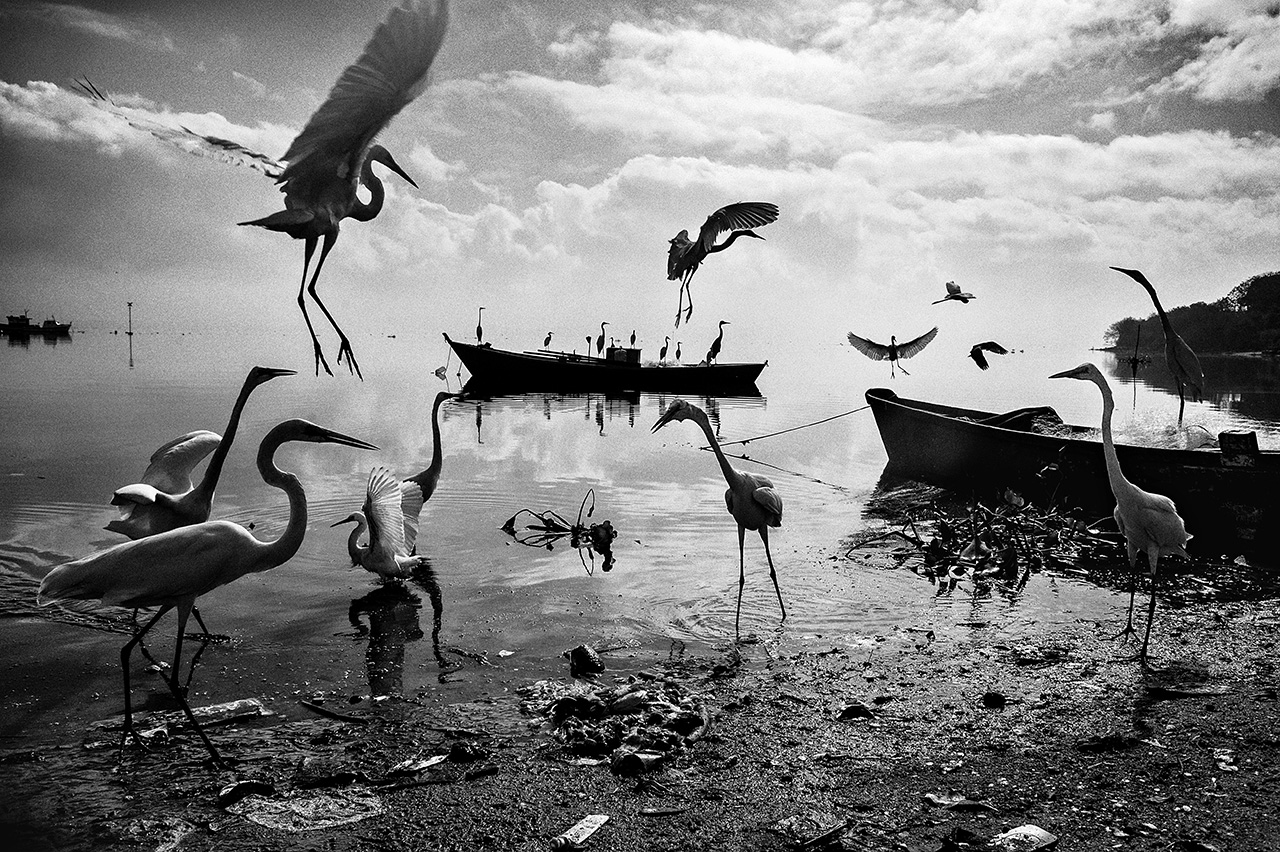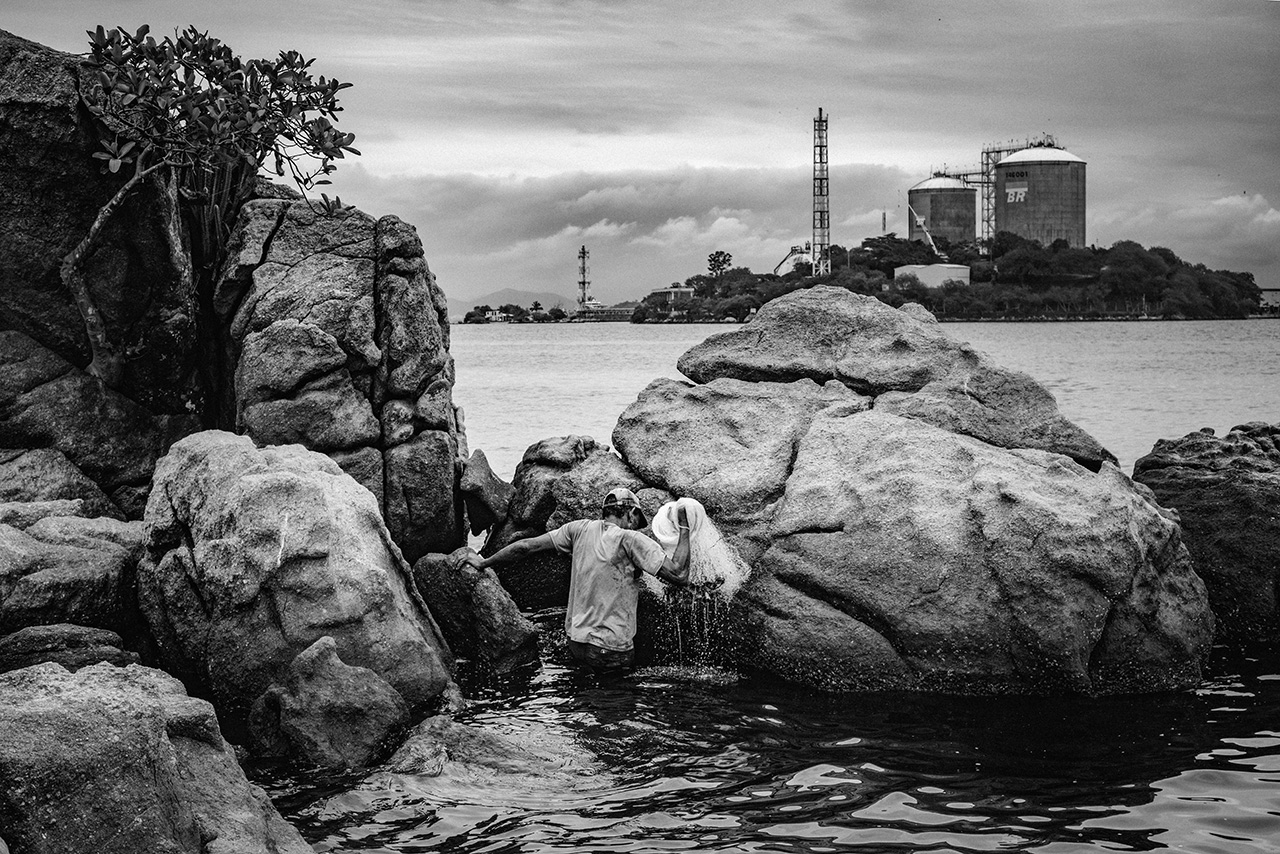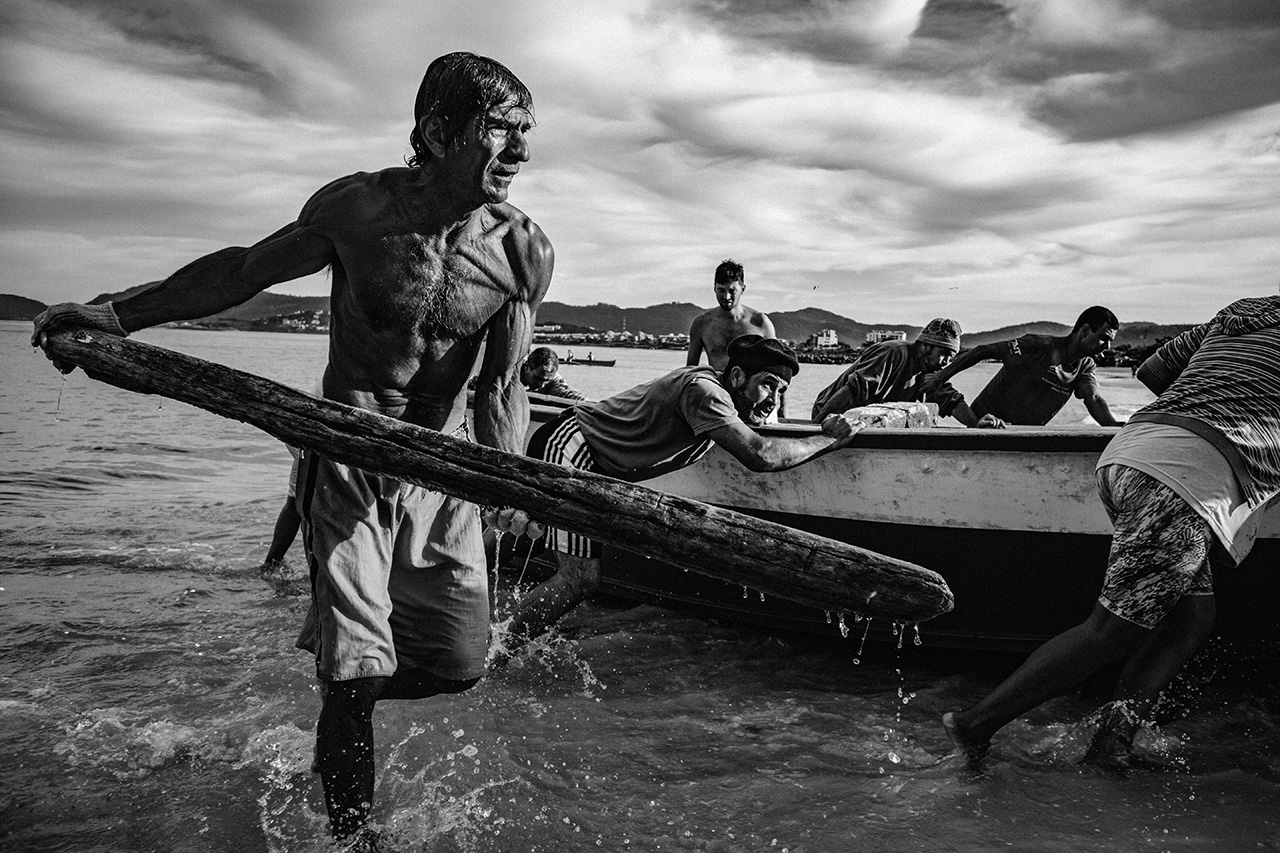In the already economically depressed area of Guanabara Bay, Rio de Janeiro’s natural harbour, the industrial development is disputing the territory with traditional fishing, leaving only 12% of the area available to 8000 fishermen. Territory limitations come from the Navy activities and from the congested shipping lanes, but even more restrictions are imposed by oil companies, who colonized the bay both above and below the water surface with offshore platforms and oil and gas pipelines on the seabed. As well as possible contaminations by the oil industry, estimated at 0,3 tons of heavy metals such as lead, zinc and mercury leaked per day, the bay is also threatened by city pollution. The metropolis discharges 17 tons of untreated domestic sewage per second into the bay. According to recent studies by the State University of Rio, the water of the bay presents a high concentration of endocrine-disrupting compounds. The recent-discovered micro pollutants seem to be able to interfere with the endocrine system, causing consequences such as the decrease in hatching percentage of fish egg and the feminization of male fish. In humans, micropollutants effects increase breast, testicular and prostate cancer. These attacks on the ecosystem are even more aggressive due to the vacuum of institutional territory control and due to the toxic waste criminal business, which is dominated by drug traffickers and militias.
This projected started in 2013 and was completed in 2019. The photographer has been investigating how these social and economical issues have changed and affected the artisanal fishermen community of Guanabara Bay, raisinge awareness on one of the many contemporary environmental dramas, which is clearly part of the global debate on food safety. As recently stated by the United Nations recently in one of their international resolutions, artisanal fishery represents more than 90% of the world’s extractive fishing. Protecting small fishing communities means protecting those habitats whose biodiversity is key to guarantee the food balance of our planet.
Photo copyright: © Dario De Dominicis




